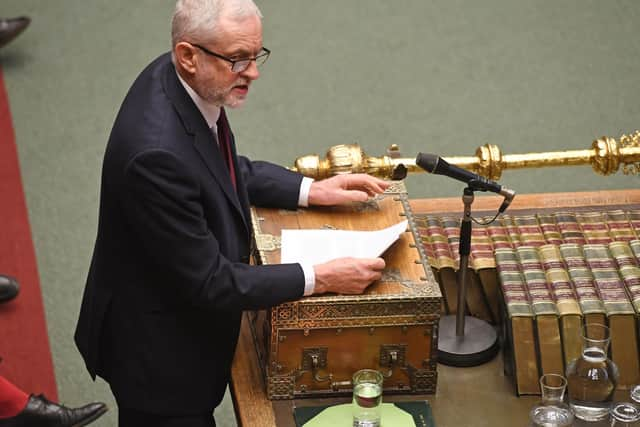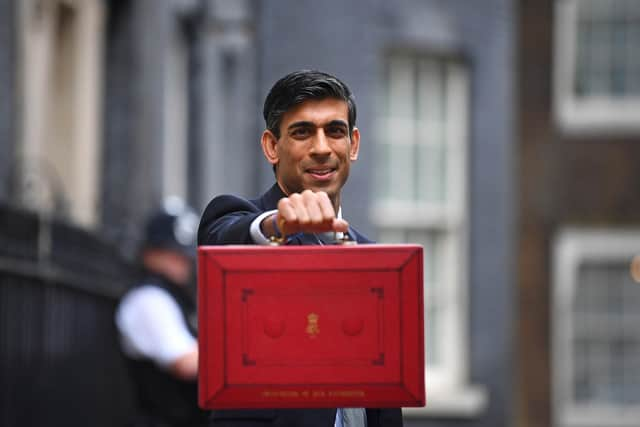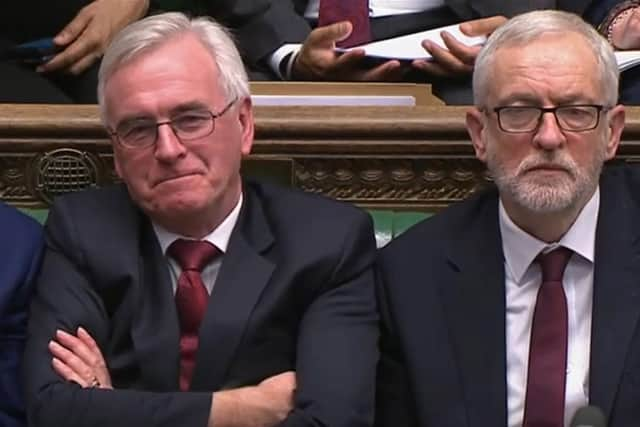Coronavirus pandemic should bring end to pantomime politics - Neil McNicholas
But what continues to bubble away below the surface is the predictable childishness of party politics. It doesn’t matter what the Government says, the Opposition is guaranteed to respond with negative criticism.
I realise that the principle role of the Opposition is to hold the Government to account, but surely that shouldn’t mean a pre-programmed “yah boo sucks” response to everything they say or try to do.
Advertisement
Hide AdAdvertisement
Hide AdLast Wednesday’s Budget speech by Chancellor Rishi Sunak was described in these pages as “calmly delivered and without hyperbole at a time of profound crisis… signalling a desire to work on a cross-party basis… (his) attention to detail commanding the confidence of the Commons”. However, you just knew that as soon as he sat down, Jeremy Corbyn would have to shoot it down in flames, or at least try to and try he did.


Was there absolutely nothing anywhere in that hour-long speech that Mr Corbyn could have complimented and given his verbal support to, or would the words have stuck in his throat? The same for SNP Commons Leader, Ian Blackford. If the Shadow Chancellor had drafted his own budget speech, might there have been some, albeit surprisingly, common ground? And if so couldn’t the Opposition have shown a little magnanimity, not to mention humility, and said so? But no, absolute opposition mode kicked in as usual.
However long the odds may be, it can’t possibly be the case that anything and everything that one party says, the other disagrees with. To disagree with the opposite party simply for disagreement’s sake is childish in the extreme and a waste of the constructive potential of parliamentary process.
MPs are not in the Commons to defend or even promote the political party to which they belong; that was simply the ticket that got them into the House of Commons where, even as in theory they represent the people who voted for them (though the whip system often removes that ability), their principle responsibility is to govern the country – whether in Government or in Opposition.
Advertisement
Hide AdAdvertisement
Hide AdEven allowing for the fact that there are bound to be some differences between the policies of the various political parties, at “a time of profound crisis” – principally responding to coronavirus, but also the crises in the NHS, social care, schools, transport, flooding and so on, there has to be some common ground between parties.


The example of car design comes to mind. Every car manufacturer employs a dedicated team of designers who are tasked with coming up with the least wind resistant, most fuel efficient, shape to their cars. If all these people are worth their salt, surely by now all cars should basically look the same, but as they don’t, why don’t they?
If Mr Sunak was indeed “signalling a desire to work on a cross-party basis” why was there no immediate show of a similar desire on Labour’s part? What does Shadow Chancellor John McDonnell know that he thinks Mr Sunak doesn’t? And if he is so convinced, then for the good of the country and its people, at this “time of profound crisis” in particular, why can’t they get their heads together and see what common ground there might be to build on?
But politicians never do and they never learn. How much hot air, time, and money was wasted over the course of the last three years as party politicking delayed our exit from the EU? Politicians fought doggedly throughout that time to defend their own corner constantly at the expense of our democratic process.
Advertisement
Hide AdAdvertisement
Hide AdWhen the Chancellor got to his feet on Wednesday, did the Opposition think he had jotted down on the back of an envelope the first thoughts on the economy that came into his head when he woke up that morning? Given everything that will have gone into the production of his budget, and particularly in light of this “time of profound crisis”, it didn’t stop Jeremy Corbyn, as if on autopilot, rising to his feet and rubbishing everything that he had just heard – this from the leader of the party from which we have never yet had one word of apology for the disastrous state in which the Gordon Brown administration left the economy.


Surely the Government is currently in such a position of strength that it can afford to enter into cross-party consultation for the benefit of the country without any loss of face or power. Naïve? Maybe. Revolutionary? Why not?
Neil McNicholas is a parish priest in Yarm.
Comment Guidelines
National World encourages reader discussion on our stories. User feedback, insights and back-and-forth exchanges add a rich layer of context to reporting. Please review our Community Guidelines before commenting.